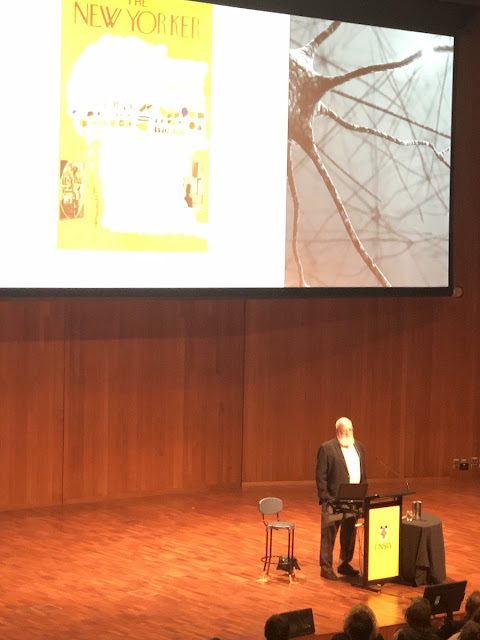The Promises listed in the Big Book,
Alcoholics Anonymous, begin with promises of "a new freedom and a new happiness."
OK, I wondered, what are
those? How to spell out these ideas?
My first step in understanding the "new freedom" and "new happiness" was to remember
"what it was like": what were my ideas of the
old freedom and the
old happiness?
If I'm rigorously honest, I think back and my life whose that the old freedom and old happiness were simple equations:
Old Freedom = Do what I feel like
Old Happiness = Get what I want
I later realized these equations are part and parcel of a spiritually fatal condition: "Self-centeredness,"
writes Timothy Keller, "makes everything else a means to an end. And that end, that nonnegotiable, is whatever I want and whatever I like, my interests over [other people's]. I'll have fun with people, I'll talk with people, but in the end everything orbits around me [my feelings and wants]." (Of course,
the Big Book has a lot more to say about self-centeredness in Chapter Five...)
It was only when my pursuits of (the old) happness and (the old) freedom led to rock-bottom misery that I started seeking a better way.
What, then, are the "new freedom and new happiness"? The latter, it seems, highlights
gratitude:
New Happiness = Being grateful for what I have
For the new freedom, I found
a nice equation in the Big Book (page 552):
New Freedom = "Doing what you ought to do because you want to do it"
(Strangely enough, the same phrase
appears in a 1901 issue of The American Florist(!).)
The
writer of that story ("Freedom From Bondage") adds that sometimes she doesn't naturally want to do what she knows she ought to do--rather, "[s]ometimes I have to ask [my Higher Power] first for the willingness, but it too always comes."
The same, I found, it true with gratitude: On paper, I know I
should be grateful for all I have--but I often need to ask God for the
conviction to know it.



